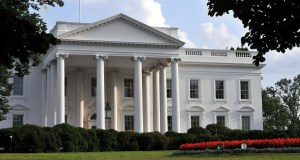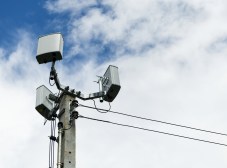Court clears White House use of message-deleting apps on technicality

A federal judge has ruled against a watchdog group that claimed the Trump administration had violated the Presidential Records Act through its alleged use of encrypted messaging apps.
The suit, brought by the Citizens for Responsibility and Ethics in Washington, or CREW, claimed that White House officials had used messenger apps like Signal and Confide that delete messages after they are read and are therefore in violation of the law.
The PRA was created in the wake of the Watergate scandal and requires the president to retain administration documents and records for historical preservation. A president can choose to dispose of records that “no longer have administrative, historical, informational or evidentiary value,” but only after consulting with the archivist of the United States to assess their value.
But what the law doesn’t include, said Judge Christopher Cooper of the of U.S. District Court for D.C., is a way for a private entity to enforce it against the president.
Also, because the White House is not considered a federal agency, it is not subject to the Federal Administrative Procedures Act, which CREW claimed would allow for a judicial ruling to prohibit the use of the apps.
“The use of automatically disappearing text messages to conduct White House business would almost certainly run afoul of the Presidential Records Act,” Cooper said in his ruling Tuesday. “But that merits question is not before the Court. Rather, the threshold question presented … is whether plaintiffs have identified a valid cause of action that would enable their case to proceed to the merits. The court concludes that they have not.”
The case illustrates the growing challenge of preserving administration documents in an increasingly technological age, said Don Kettl, a professor at the University of Maryland’s School of Public Policy and a nonresident senior fellow at the Brookings Institution.
“These issues are big and they are growing and they are only going to get more so as we get deeper into the questions of policy and whether or not there are criminal issues that may have arisen, the sort of thing that [special counsel Robert] Mueller may be investigating,” he said.
The House Oversight and Government Reform Committee also raised the issue in March 2017, when then-chairman Jason Chaffetz, R-Utah, and ranking member Elijah Cummings, D-Md., questioned White House procedures for preserving electronic documents.
Kettl said that while some White House operations can go on outside the public eye, utilizing technology that destroys the record before it can be judged creates some thorny issues with the intent of the PRA.
“There surely have to be some opportunities for people advising top government officials to have confidential conversations,” he said. “But on the other hand, there could be both the temptation to take things that would have been previously on paper and disclosable and put them in a forum where they can’t be. That raises really difficult questions that law is clearly struggling to keep up with.”






